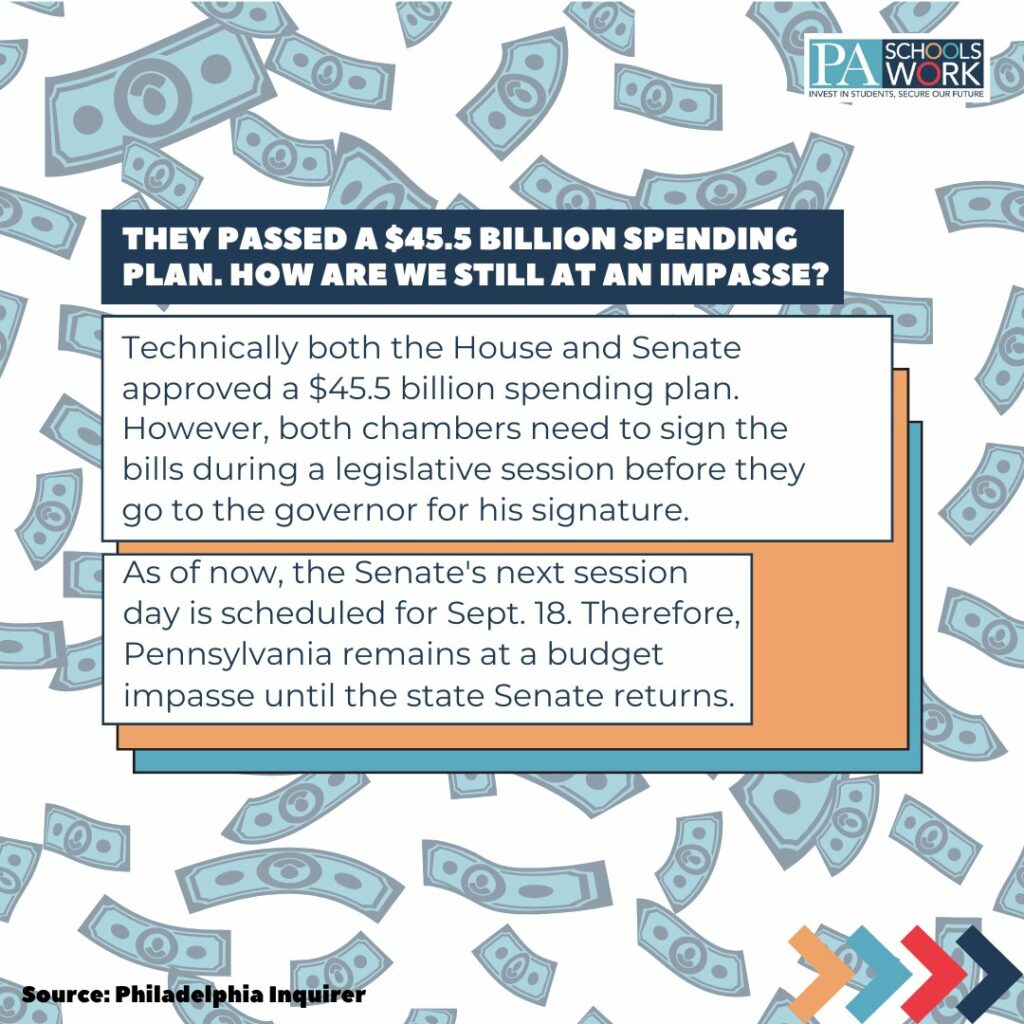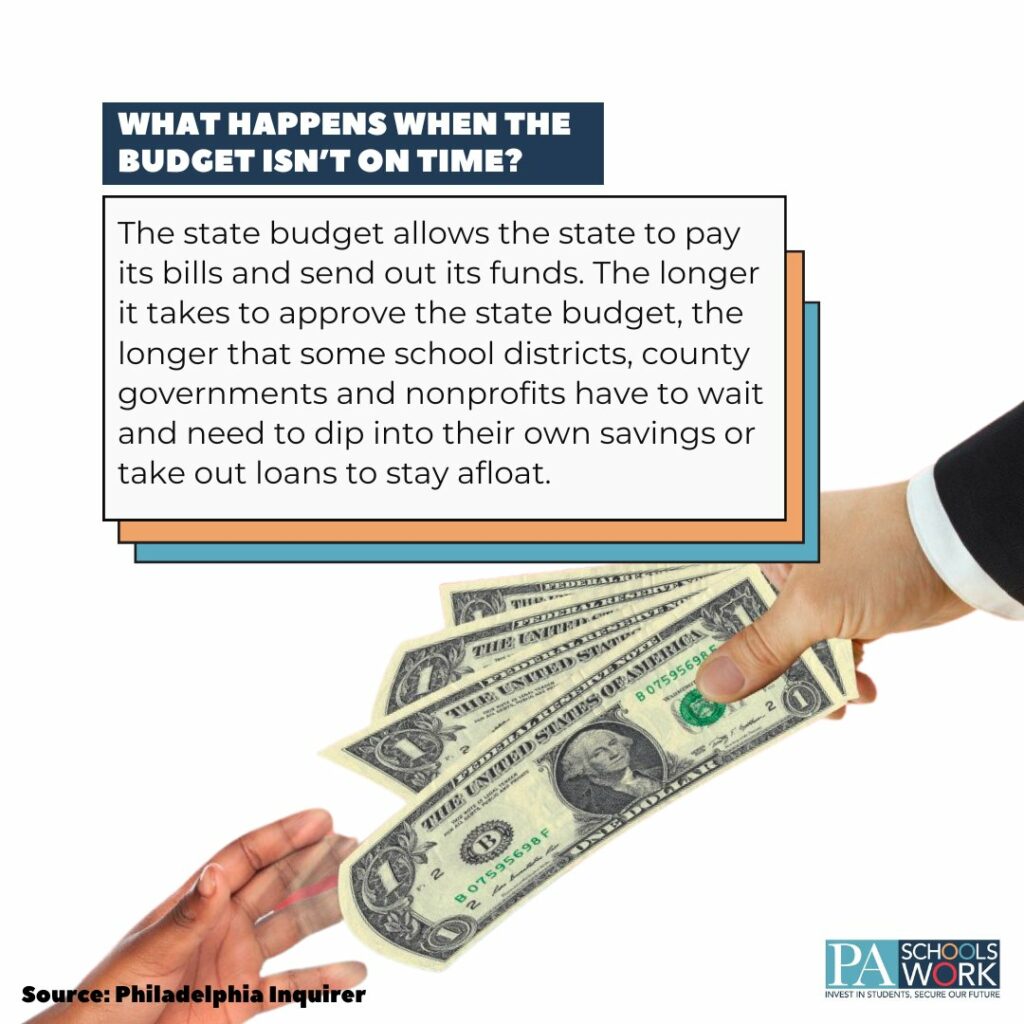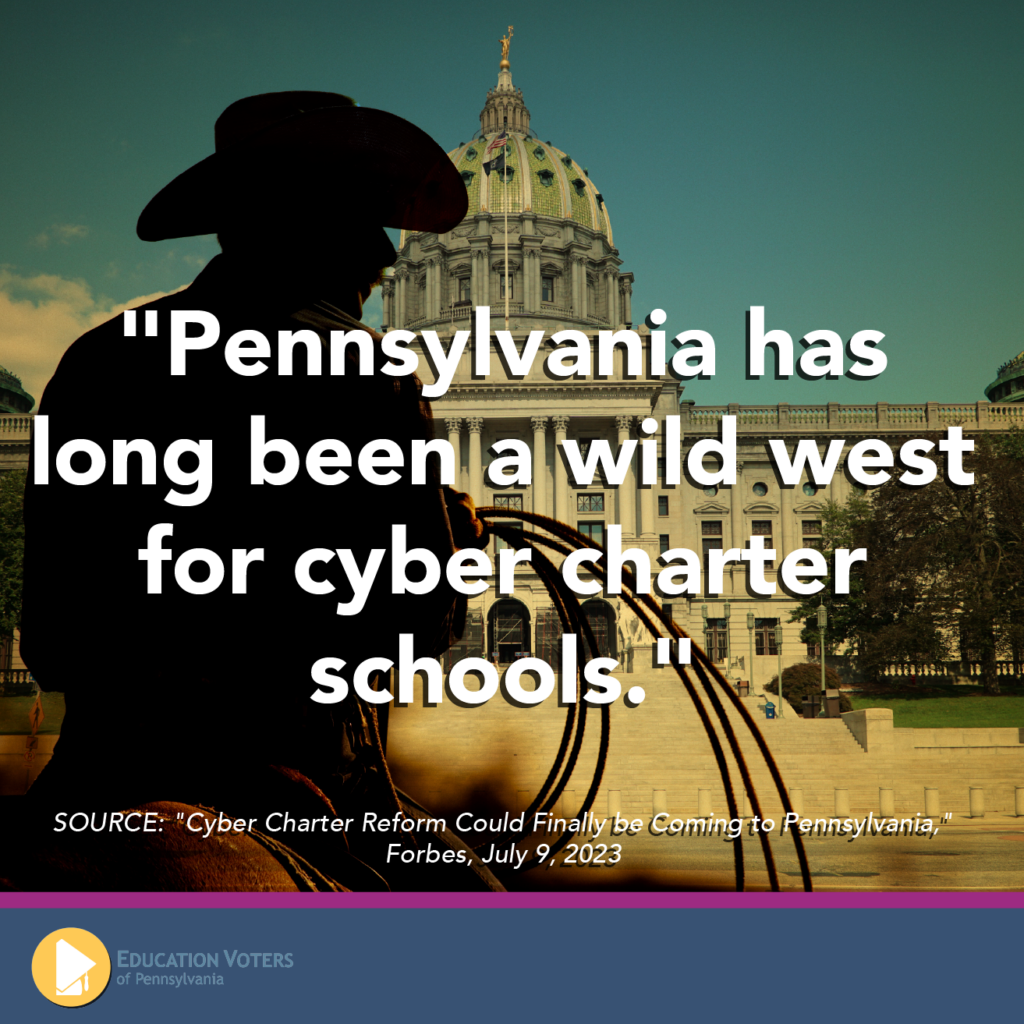BUDGET IMPASSE UPDATE: Senate Republican leaders continue to refuse to bring the Senate back to Harrisburg before September 18th to finalize the budget bill their chamber supported, creating a state budget impasse.

Senate Republicans are upset because Governor Shapiro promised to line item veto $100 million in the budget bill for school vouchers after the PA House soundly defeated in committee an out-of-state, billionaire-backed school voucher bill passed by the Senate. Without House support for the proposal, it was nonsensical to include $100 million in the budget for vouchers.
It is simply astonishing that Republican leaders are threatening a prolonged budget impasse that would harm school districts and nonprofits in their own communities because they did not get the DeVos voucher bill that they wanted. 👀👀

We’ll keep you up to date on any budget impasse news.
Now, let’s unpack House Bill 1422, the fabulous cyber charter reform bill that passed the PA House with strong bipartisan support last week!
Thanks to House Democrats, who put up the votes to pass this bill out of committee and were willing to run the bill in the House, HB 1422 passed by a vote of 122-81. It is now with the Senate, where it is waiting for a vote there.
Given the budget impasse and the fact that the House and Senate are not scheduled to return to Harrisburg until September, we are not focusing on advocacy around HB 1422 at this moment. But we can all learn about the bill and what it would mean for our school districts now to be prepared for advocacy with our senators in the fall!
Click HERE to find an estimate of how much your district would save if the Senate enacts HB 1422.
Click HERE for a Summary of PA House Bill 1422
Here are highlights of the bill!
Advertising and Sponsorships
- Requires all public schools who advertise to state that the cost of tuition and other costs are covered by taxpayer dollars.
- Prohibits all public schools from paying to sponsor public events such as parades and professional sporting events.
Financial
- Creates a statewide tuition rate for non-special education cyber charter students of $8,000.
- Automatically increases the statewide tuition rate every three years based on the average rate that school districts raise their local property taxes.
- The statewide tuition rate is adjusted for special education students based on the needs of the student in accordance with the same tiered funding factors used to distribute special education funding to school districts.
- Imposes fund balance limits on cyber charter schools.
- Requires cyber charter schools to approve an annual budget by June 30th each year and make the budget available.
- Prohibits cyber charter schools from paying or reimbursing parents/guardians from educational or field trips as well as offering any cash, gifts or other incentives for enrolling or considering enrolling in a cyber charter school.
- Requires PDE to set a maximum allowable reimbursement for technology services such as internet access.
Management Companies and Foundations–Ensures greater transparency of charter school foundations and management companies through many new requirements (see full document for details).
Amendments– Creates a process for a cyber charter school to request changes to their charter agreement.
Enrollment
- Requires cyber charter schools to verify the residency of enrolling students.
- Removes caps on cyber charter school enrollment except for cyber charter schools designated as comprehensive support and improvement schools.
- Requires cyber charter schools to report the number of newly enrolled students and how many of those students have been identified by the cyber charter school as needing special education.
Wellness Checks–Requires cyber charter schools to visibly see and communicate with enrolled students at least once per week to verify the student’s well-being.
Programs and Services– Allows cyber charter schools to sell programs, courses or other educational services to school districts.
Access to school facilities for testing–Requires school districts and other public schools to work with cyber charter schools to provide access to facilities for state testing.
Transportation–Would require school districts of residence to transport special education students in accordance with the student’s IEP.
We can’t thank advocates enough for the role you played in ensuring that vouchers stay out of PA and in building the public and political will to finally get cyber charter school reform moving in Harrisburg.
PS: We most highly recommend this article written by Peter Greene, a blogger from northwest PA. Cyber charter reform could finally be coming to Pennsylvania by Peter Greene,


Recent Comments